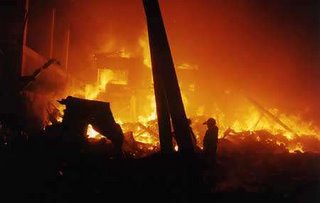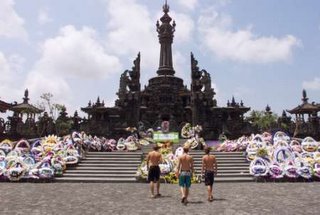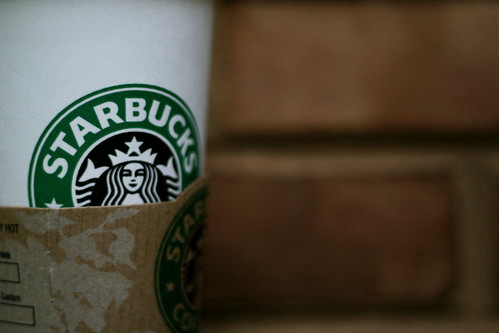
Foreign governments have been more measured in their travel advice since the Bali bombing, giving its tourism a chance to recover
As the rickety second-hand Lion Air plane made its way from Lombok to Bali in late November, the passenger in the seat next to mine was making an articulate case for ignoring travel advisories. "Fly is Cheap" was the discount airline's unsettingly syntax-challenged motto: the fare had been less then £35 round trip and I was beginning to wonder just how long the previous owner of the planes, LanChile, had used them before I was distracted by the optimism of my neighbour on the flight, Ari Antonovsky, Antonovsky, who is based in Perth, had decided to tack on a couple of days' holiday in Bali to a business trip to Indonesia, just weeks after bomb blasts at restaurants on the island had killed more than 20 people in OCtober. being killed in a terrorist attack was either a question of karma or statistical odds, he reasoned: "It is either a matter of fate - in which case it does not matter where you are. If you don't believe in fate, it is down to statistic."
The number of people who died in car accidnts in Australia every year, Antonovsky said, far outstripped the number of people who died in terrorist attacks in Indonesia. Antonovsky had travelled to Indonesia less than a year after the horrific bombing at a Kuta nightclub in 2002 with his daughter and had felt perfectly safe. "The West has become overly concerned about this issue of security (for tourst). Our political leaders keep pushing it to the point that we'll all be paranoid," he said.

My initial sense in bali in late November was that these might be rousing words, but few travellers are willing to live by them. Kuta beach in the morning was deserted but for a procession that made coulourful offerings to honour the dead. To the uninitiated in Balinese rituals, it might well have been mistaken for a celebration rather than funeral rite. The achingly cool Ku De Ta seemed mostly deserted mid-morning for brunch as if all the island's revellers were nursing simultaneous hangovers.
Bali's second terrorist attack in three years had claimed its first major business casualty the week I arrived there. Air Paradise, a feisty airline that specialised in low-cost travel between Australia and Bali, shut upshop that week. The company's slogan, "Bali is our home", seemed all the more poignant as its aircraft looked eerily lost admidst the to-ing and fro-ing of other planes at Denpasar airport. A prominent travelagent complained that bookings for holidays to Bali had dropped from 30 to 50 per day to half a dozen. Restaurants around the island were so quiet that the hastly gamelan serenading sounded like a dirge.
 It all seemed, as Yogi Berra would have said, déjà vu all over again. Conversations with hoteliers, however, revealed a more uplifting story. Kamal Kaul, a vice-president of Oberoi and, until recently, the Oberoi's decadently spacious property in Seminyak, said that occupancy ratd had dropped to about 30 per cent in November, down from a more typical 60 per cent (November is off-season). In 2002, by contrast, "we went from nearly 100 per cent to single digits," he said. On that occasion, he recounts,staff at the British embassy were calling guests and teling them to leave the island immediately. From the US and Australian governments as well, "the message was 'Get out (of Bali)'," says Kaul. "It was like a giant vacuum cleaner."
It all seemed, as Yogi Berra would have said, déjà vu all over again. Conversations with hoteliers, however, revealed a more uplifting story. Kamal Kaul, a vice-president of Oberoi and, until recently, the Oberoi's decadently spacious property in Seminyak, said that occupancy ratd had dropped to about 30 per cent in November, down from a more typical 60 per cent (November is off-season). In 2002, by contrast, "we went from nearly 100 per cent to single digits," he said. On that occasion, he recounts,staff at the British embassy were calling guests and teling them to leave the island immediately. From the US and Australian governments as well, "the message was 'Get out (of Bali)'," says Kaul. "It was like a giant vacuum cleaner."This time around, Kaul and other hoteliers feel governments - and travellers - around the world have been much more measured in their response.
The UK government, notably, has not issued a specific travel warning for Bali as it did in 2002. UK travel warnings have an especially brutal knock-on effect on travel to a country because travel operators and travellers in the UK are no longer ablt to obtain insurance after a Foreign Office advisory warning. John O'Sullivan, the general manager of the Four Seasons at Jimbaran Bay, says bookings held up especially well over the Christmas and New Year period. His hotel's registers show a steady flow of guests from the UK this time around. "If you couldn't get insurance in the event that something happened to your children (in 2003) - well, that changes you from being an explorer to just being silly," he says. The other major source of customers for the Four Seasons in Bali, Japan, is also holding up reasonably well, which suggests that travellers from that traditiionally risk-averse travel market are also undaunted. The US State Department continues to have a travel warning advising against all non-essential travel to Indonesia.
Travel to such destinatiions soon after a terrorist attack, once you have fully briefed yoursself on the risks, makes plenty of sense. For starters, even a place taht would be normally heaving like Kuta beach, suddenly seemed pristine and relatively untouched. To feel that you are discovering Bali anew long after it became a clinche for a tropical paradise is a strange and pleasurable experience - paradise regained, if you will. For those with a more altruistic bent, there is the added bonus of being able to help a tourism industry that desperately needs help. In 2003, Antonovsky recalls having seen groups of young men sitting around in the town centres, waiting fro work. As tour guides and drivers, they were no longer inclined or able to work in the fields.
This time around, the stores along that endless strip of tourist tat in Seminyak looked quiet as well, but byall accounts Bali was weathering the storm better than it did after the atack in October 2002. Decades after Bali was memorably described as the "morning of the world" the relative resilience of its tourist traffic after a terrorist attack suggest more of us are taking in our stride teh new world disorder from London to Madrid to Sharm el Sheikh and getting in the plane anyway. By the fuzzy logic of our post 9/11 world, that represents a new dawn of a sort.
Rahul Jacob on Travel, Weekend, Financial Times

